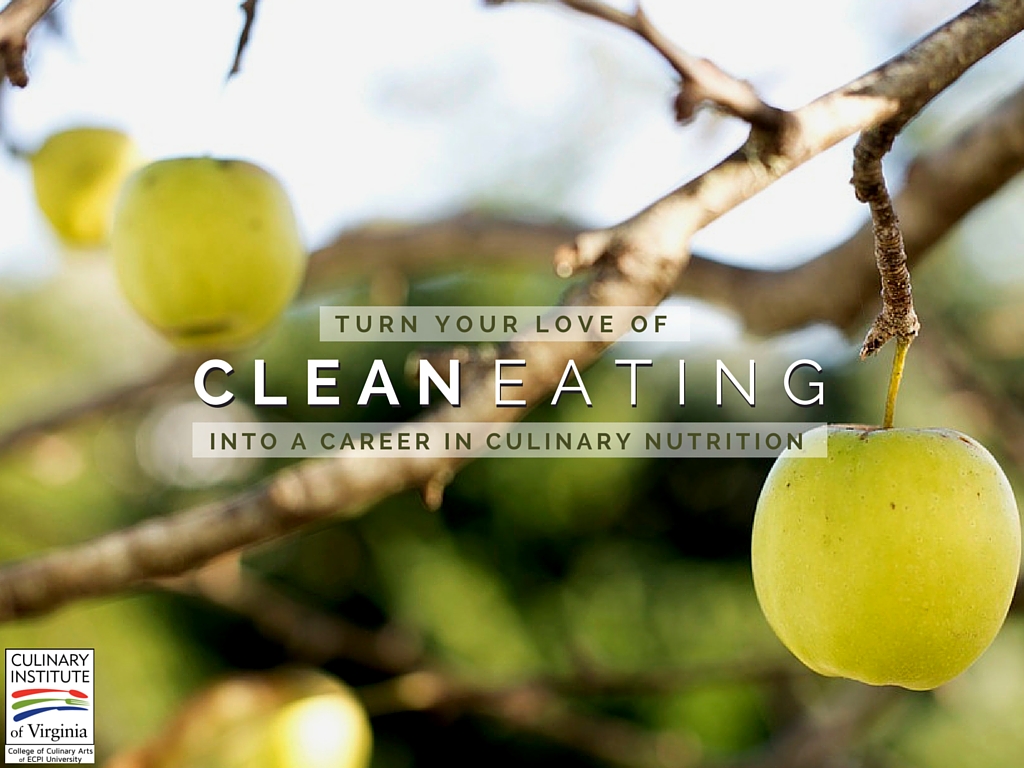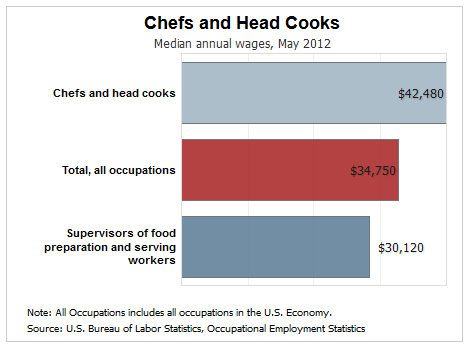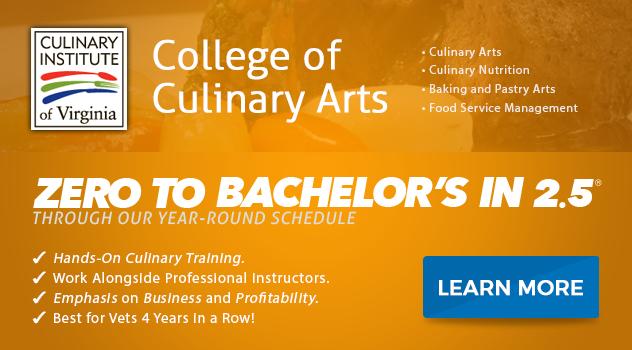 You may not have given much thought to turning your love of clean eating into a career in the culinary arts, but it’s actually an excellent option if you’re already interested in creating dishes from whole and minimally-processed foods. An education in culinary nutrition could set you on the path to becoming a highly sought-after chef, capable of producing creative, delicious dishes for discerning diners.
You may not have given much thought to turning your love of clean eating into a career in the culinary arts, but it’s actually an excellent option if you’re already interested in creating dishes from whole and minimally-processed foods. An education in culinary nutrition could set you on the path to becoming a highly sought-after chef, capable of producing creative, delicious dishes for discerning diners.
Concepts in Clean Eating
While it sounds simple to create delicious dishes using whole and minimally-processed foods, it can actually be a very challenging endeavor. Clean eating isn't a diet focused on avoiding certain foods, or eating smaller or larger amounts of various nutrients like protein or carbohydrates. Instead, clean eating incorporates a variety of foods that are as close to their natural state as possible. Processing foods, even minimally, can affect their nutrition content. The less a food is processed or handled, the “cleaner” it is. Chefs with a focus on clean eating and culinary nutrition have the ability to create stunning dishes that are as healthy as they are innovative.
Clean eating focuses on the journey various ingredients make as they travel from the farm to the plate. Dishes created with these foods tend to be exceedingly fresh, flavorful and rich in natural nutrients. Processed foods, on the other hand, tend to have a lot of added ingredients like flavor enhancers, preservatives and artificial flavorings. They also lack natural vitamins and minerals, as well as the healthiest parts of fruits and grains like fiber and bran.
Get Ahead of the Pack with Nutrition
Most dishes in the clean eating category feature a lot of vegetables and fruits. If you already create dishes that are heavy on natural, whole fruits, vegetables and grains, you’re already far ahead of many aspiring culinary nutrition students. Unless you have a specific interest in eating clean, it’s probably not something you’ve really taken the time to learn. It presents unique challenges and requires a good deal of forethought and planned trips to the grocery store. However, if you’re already part of the clean eating movement, you may be in an excellent position to parlay that into a culinary career, provided you have the right training.
Clean Eating & the Hospitality Industry
Thanks to a fundamental shift in attitudes about clean eating and healthy living, the hospitality industry is undergoing some radical changes. A new kind of consumer has emerged that understands the importance of their buying decisions, and they’re making more informed choices about their travel, their hotel choices, and, most importantly for your purposes, their eating habits. This new breed of more informed consumer is creating demand for chefs who are not only capable of producing mouthwatering dishes, but also doing it in a way that is both healthy and sustainable. With a good knowledge of culinary nutrition and whole food preparation, you could be in a very good position to meet those demands.
 According to the Bureau of Labor Statistics, while chefs and head cooks in general earned an annual median income of $42,480, those in traveler accommodations earned considerably more at $48,210 annually in 2012. While the overall growth outlook for chefs is expected to be around 5% by 2022, specialty chefs that can fill a niche, such as clean eating, will likely be in higher demand; those with the greatest ability to create fresh, innovative fare are likely to be most sought-after.
According to the Bureau of Labor Statistics, while chefs and head cooks in general earned an annual median income of $42,480, those in traveler accommodations earned considerably more at $48,210 annually in 2012. While the overall growth outlook for chefs is expected to be around 5% by 2022, specialty chefs that can fill a niche, such as clean eating, will likely be in higher demand; those with the greatest ability to create fresh, innovative fare are likely to be most sought-after.
It’s not just hotels that will be searching for clean eating chefs, though. Restaurants, schools, retirement communities and many others are beginning to grasp the importance of offering food that’s not only healthy, but tastes great, too. There is a growing body of research pointing to the benefits of clean eating, and it’s becoming more a necessity than a luxury to have a chef on staff who understands clean eating and culinary nutrition.
Transforming a Cooking Hobby into a Career
Getting started on the road to a career in culinary nutrition will require that you understand dietary management, nutrition, and wellness; make sure the degree program you choose gives you the chance to work with chefs and other professionals in the nutrition field. The right program will offer help in developing in-demand skills for getting started in the healthcare or hospitality industries, and would also offer you the opportunity to hone your skills in a controlled, professional setting. This hands-on approach will help you develop the culinary skills that are necessary in today’s healthier kitchens. The program you choose should also give you a foundation of the science behind good nutrition, and what it takes to properly manage dietary intake.
I am learning so much I often think my brain can't handle it... but paired with amazing teachers (chefs) this has been by far my very best life experience
Posted by Nichole Stone on Tuesday, July 14, 2015
Get Started!
If you’re interested in a career in culinary nutrition, contact ECPI for information about earning your Associate of Applied Science in Culinary Arts and Applied Nutrition. In just 15 months, you could be on your way to a new career! It could be the Best Decision You Ever Make!
DISCLAIMER – ECPI University makes no claim, warranty or guarantee as to actual employability or earning potential to current, past or future students or graduates of any educational program we offer. The ECPI University website is published for informational purposes only. Every effort is made to ensure the accuracy of information contained on the ECPI.edu domain; however, no warranty of accuracy is made. No contractual rights, either expressed or implied, are created by its content.
Gainful Employment Information – Culinary Nutrition - Associate’s
For more information about ECPI University or any of our programs click here: http://www.ecpi.edu/ or http://ow.ly/Ca1ya.


